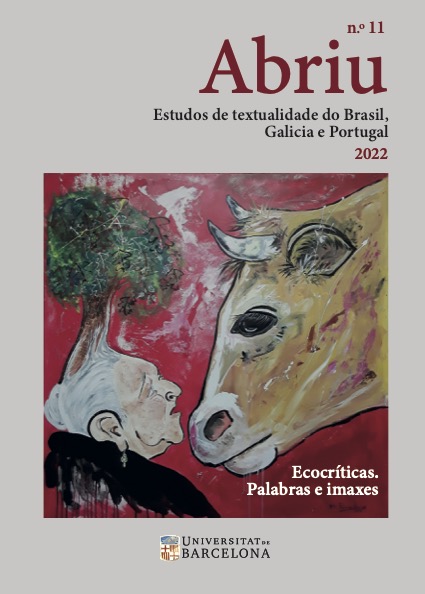Digital nature
Videopoetry from an ecocritical perspective
DOI:
https://doi.org/10.1344/abriu2022.11.7Keywords:
Videopoetry, poetry, film, ecocriticism, ecofeminismAbstract
Starting at the observation of the digital and emminently audio-visual ecosystem we inscribe ourselves in, this article questions whether videopoetry (as a singular artistic expression, resulting from this audio-visual era) can help us define ourselves and better navigate the world around us. We will analize the influence of the natural within the digital phenomenon of videopoetry, exploring its intersections in the light of ecofeminism. We will first provide a brief approach to the main theoretical issues around videopoetry and ecofeminism. We analize the influence of the different branches of ecofeminism in a series of selected videopoems from representative international authors. We then comment, from an ecocritical perspective, on how the concepts of body, nature, woman, space and culture are treated in those works, making a particular reference to the Galician reality. We conclude by recognising videopoetry’s power to convey through its digital body a much needed ecocritical vision of our natural habitat, our relationship with it, and our very own identity.
Downloads
Published
How to Cite
Issue
Section
License
Copyright (c) 2021 Celia Parra Díaz

This work is licensed under a Creative Commons Attribution-NonCommercial-NoDerivatives 4.0 International License.
The Author retains ownership of the copyright of the article, unless the contrary is stated, and all rights not expressly granted in this agreement, including the non-exclusive right to reproduce, distribute, perform, and display the article in print or electronic form, and grants to Abriu: estudos de textualidade do Brasil, Galicia e Portugal the exclusive rights to first publication of the Article. The work will be available under a Creative Commons Attribution-Noncommercial-No Derivative Works license, by which the article must be credited to the Author and the Journal must be credited as first place of publication.


